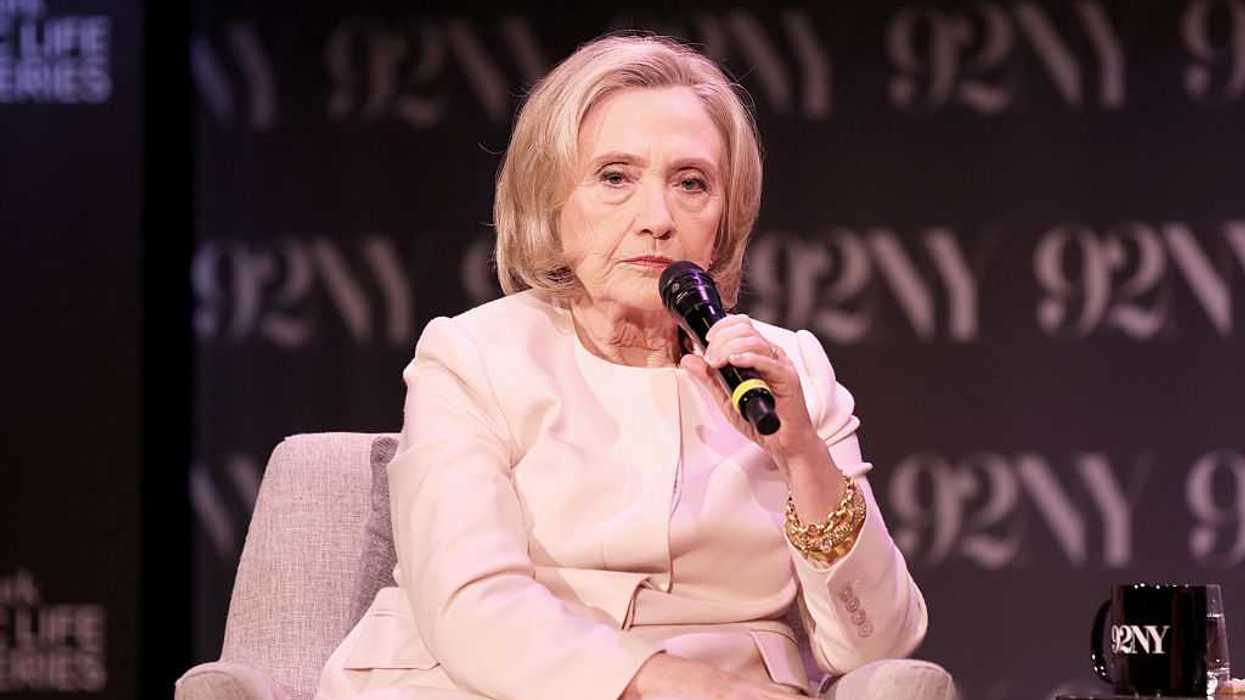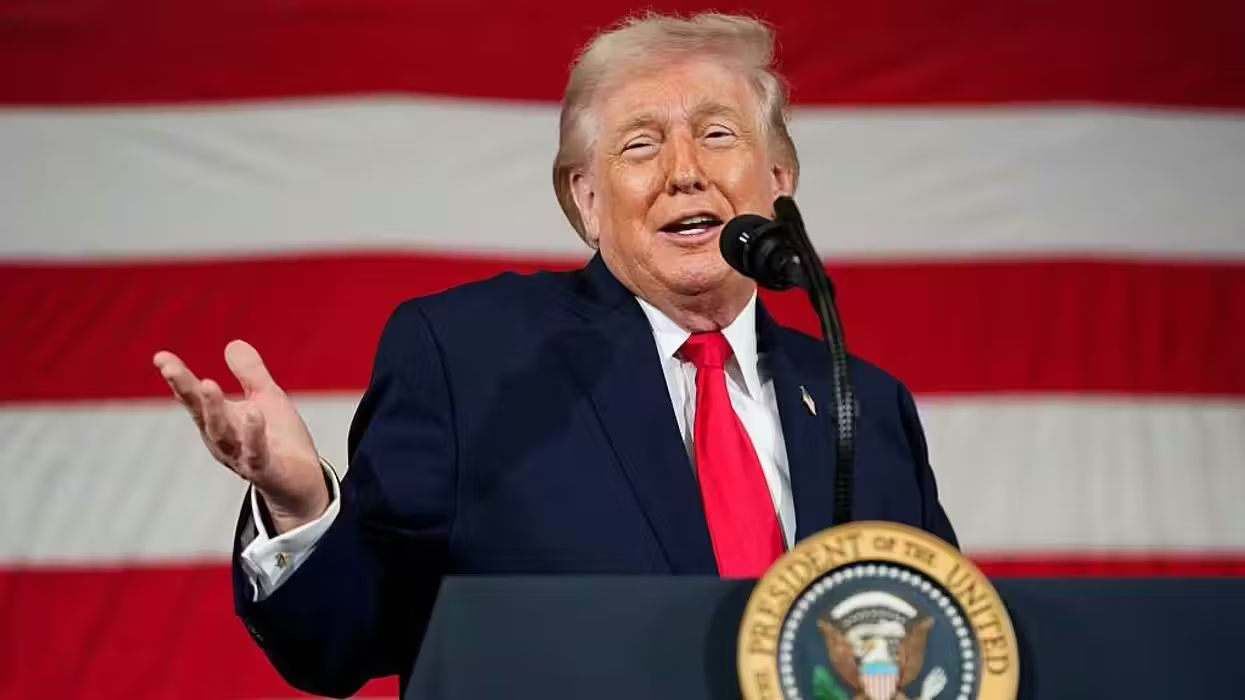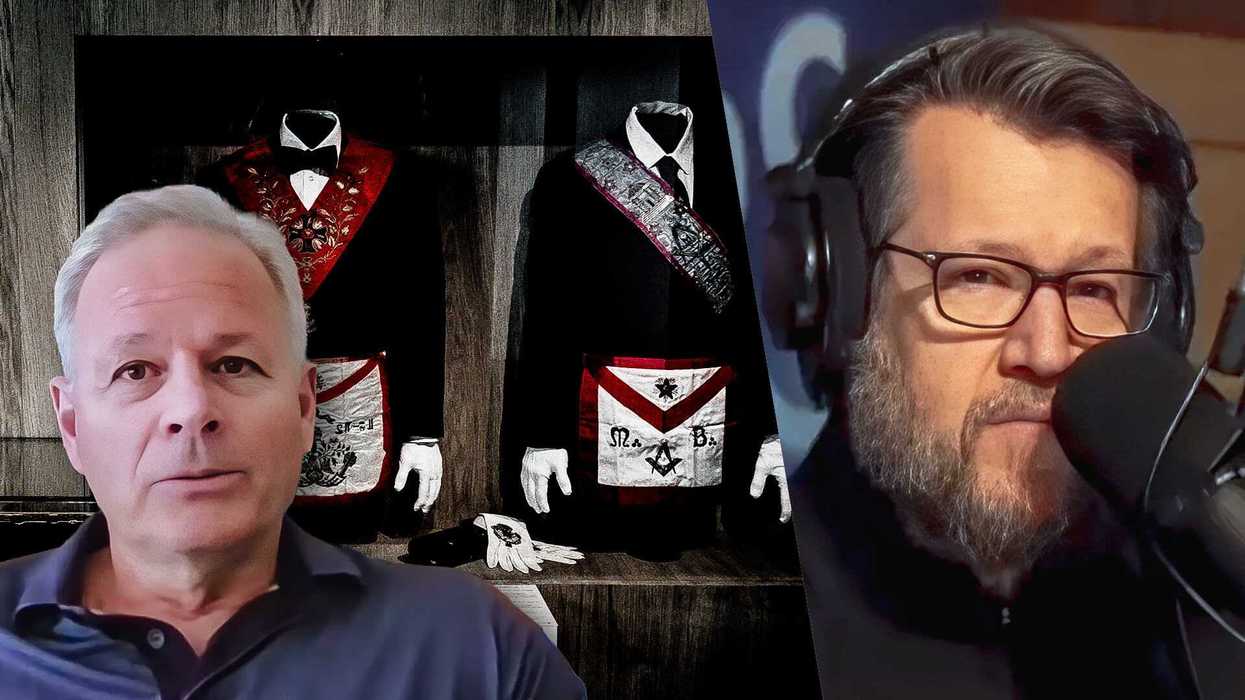Former President George W. Bush delivered a rebuke Thursday of the coarsening of American politics during a speech at a forum sponsored by the George W. Bush Institute in New York City.
Bush condemned rising nationalism in Western societies and issued a defense of free markets as a means of promoting freedom. Some characterized the speech as a condemnation of Trumpism, although Bush did not use the current president’s name.
What did Bush say about democracy?
Bush told attendees at the forum that “We are gathered in the cause of liberty this is a unique moment.”
“The great democracies face new and serious threats – yet seem to be losing confidence in their own calling and competence,” he said. “Economic, political and national security challenges proliferate, and they are made worse by the tendency to turn inward. The health of the democratic spirit itself is at issue. And the renewal of that spirit is the urgent task at hand.”
Bush argued that since the end of World War II, American presidents of both parties have “encouraged and benefited from the global advance of free markets” because they knew “that American security and prosperity were directly tied to the success of freedom in the world.”
“Free nations are less likely to threaten and fight each other,” he said. “And free trade helped make America into a global economic power.”
Bush said that challenges such as terrorism and economic insecurity have frayed confidence in American institutions.
“Our governing class has often been paralyzed in the face of obvious and pressing needs,” he said.” The American dream of upward mobility seems out of reach for some who feel left behind in a changing economy.”
“Discontent deepened and sharpened partisan conflicts,” he continued. “Bigotry seems emboldened. Our politics seems more vulnerable to conspiracy theories and outright fabrication.”
What did Bush say about political discourse?
On American political discourse, Bush said, "We have seen our discourse degraded by casual cruelty.”
“At times, it can seem like the forces pulling us apart are stronger than the forces binding us together,” Bush said. “Argument turns too easily into animosity. Disagreement escalates into dehumanization. Too often, we judge other groups by their worst examples while judging ourselves by our best intentions – forgetting the image of God we should see in each other.”
He said “nationalism distorted into nativism – forgotten the dynamism that immigration has always brought to America.”
“We see a fading confidence in the value of free markets and international trade – forgetting that conflict, instability, and poverty follow in the wake of protectionism,” Bush said.
He said “isolationist sentiments” became prominent as some forgot that “American security is directly threatened by the chaos and despair of distant places, where threats such as terrorism, infectious disease, criminal gangs and drug trafficking tend to emerge.”
What does Bush say America should do?
Bush said the United States should harden its own defenses against external attacks on democracy, maintain America’s role in defending freedom and free markets, and strengthen democratic citizenship.
“We should not be blind to the economic and social dislocations caused by globalization,” he said:
People are hurting. They are angry. And, they are frustrated. We must hear them and help them. But we can’t wish globalization away, any more than we could wish away the agricultural revolution or the industrial revolution. One strength of free societies is their ability to adapt to economic and social disruptions. And that should be our goal: to prepare American workers for new opportunities, to care in practical, empowering ways for those who may feel left behind.
He called for more efforts to teach young people about the value of democracy.
“Our identity as a nation – unlike many other nations – is not determined by geography or ethnicity, by soil or blood,” he said. “Being an American involves the embrace of high ideals and civic responsibility. We become the heirs of Thomas Jefferson by accepting the ideal of human dignity found in the Declaration of Independence. We become the heirs of James Madison by understanding the genius and values of the U.S. Constitution. We become the heirs of Martin Luther King, Jr., by recognizing one another not by the color of their skin, but by the content of their character.”
“This means that people of every race, religion, and ethnicity can be fully and equally American,” Bush continued. “It means that bigotry or white supremacy in any form is blasphemy against the American creed. And it means that the very identity of our nation depends on the passing of civic ideals to the next generation.”
Bush added that “civic learning” is vital to the American experiment. in schools.
“Our young people need positive role models,” he said. “Bullying and prejudice in our public life sets a national tone, provides permission for cruelty and bigotry, and compromises the moral education of children. The only way to pass along civic values is to first live up to them.”
He said, “In short, it is time for American institutions to step up and provide cultural and moral leadership for this nation.”
Is Bush optimistic?
The 43rd president said it is “the great advantage of free societies that we creatively adapt to challenges, without the direction of some central authority.”
“Self-correction is the secret strength of freedom,” Bush said. “We are a nation with a history of resilience and a genius for renewal.”
“Right now, one of our worst national problems is a deficit of confidence,” he added. “But the cause of freedom justifies all our faith and effort. It still inspires men and women in the darkest corners of the world, and it will inspire a rising generation.”
“The American spirit does not say, ‘We shall manage,’ or ‘We shall make the best of it.’ It says, ‘We shall overcome,’” he concluded. "And that is exactly what we will do, with the help of God and one another."







